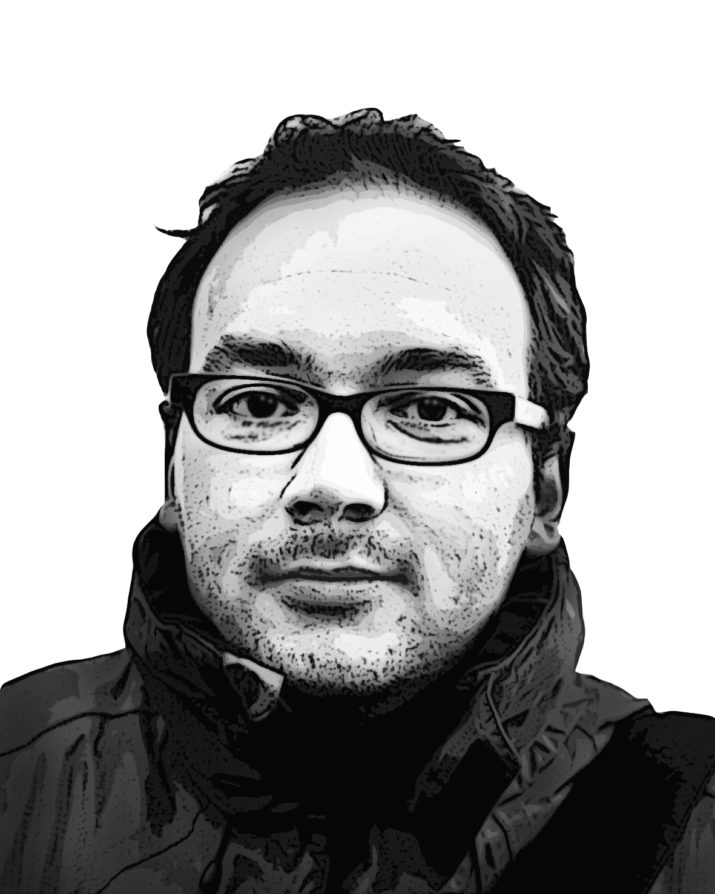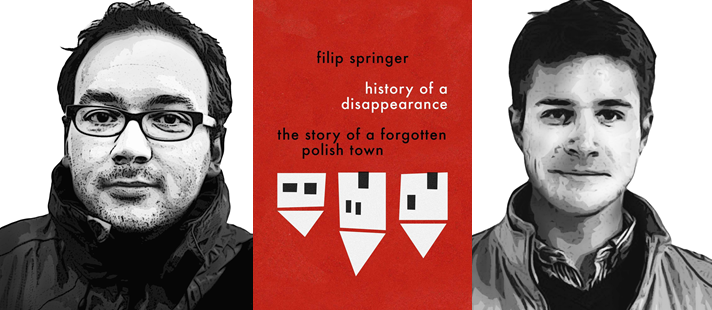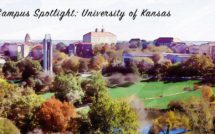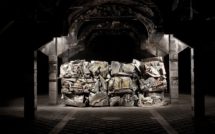

Translated from the Polish by Sean Bye
“It was right before the war, and we’d put all the poverty and deprivation of the Great Depression behind us. The whole economy was doing better, hardly anyone was unemployed, they’d get jobs building the Autobahn or could get permits to work abroad. The craftspeople in town got plenty of commissions. It wasn’t until the draft came in and Germany started openly rearming that I found out the mayor was required to report to the police on local people’s political views.”[1]
“They would hold roll calls at school where we all had to stand for an hour with one arm held out in a Nazi salute. Usually it was Mr. Wendler organizing these things, not so often the other teachers.”
“In school they also told us under no circumstances were we to sled down the main road to Jannowitz.”
“I was still in school when the refugees started arriving from the East: Mr. Stolpe and his family, who’d lived in Posen province, and Mr. Rose and his wife, from Russian Ukraine. They could tell us plenty about the persecution German citizens suffered in Poland and the Soviet Union. But other than that, before World War II broke out, life in Kupferberg went on harmoniously.”
“For years and years, Wilhelm Ducksch—who ran a leather workshop out of our building—could barely make ends meet and on several occasions he ended up almost bankrupt. In 1935, a large order came in related to the reconstitution of the air force. One room in the attic of a tavern wasn’t enough for Ducksch anymore, so he had to move his whole operation to Petersdorf. Over there he could come into his own, though nobody in Kupferberg could buy his perfect briefcases or leather goods anymore.”
“In 1938, many young men from Kupferberg were drafted into the Wehrmacht and took part in the annexation of Austria, the Sudetenland, and Bohemia. A year on, we had high hopes the march to Poland wouldn’t lead to war. But it turned out our hopes were in vain.”
“The first man from Kupferberg to fall on the field of battle in Poland was Alfons Müller, the son of Müller the cantor. The longer the war raged, the less often we got to see our young men—they only came home on leave occasionally. But they didn’t tell us what was going on at the front.”
“It just meant my father was gone for a long time. That was how it began, and I actually never saw him again afterward. So, for me, the outbreak of war meant nothing but my father’s disappearance. I didn’t even know where he’d gone or what he was doing there.
“That was our whole war. The one way it manifested itself was that there were just women, children, and old people left in town.”
“Before the war we already had a few youth organizations in Kupferberg and the villages nearby. Each one had different types of uniforms. As we got closer to war, you’d see fewer of those uniforms and more of the brown Hitler Youth shirts. But no one would ever think of complaining about the Nazis. That would get you thrown in prison, or at least beaten up. So everyone kept their mouths shut.”
“Some people in Kupferberg were always doom and gloom, they were sure Hitler would take us to war. How right they were! The first men were called up just as soon as the draft was introduced. Next they held the extended autumn maneuvers. The atmosphere in the village council kept getting tenser, because they weren’t hiring anyone new but they were being absolutely inundated with work. Now they had to insist that some of the townspeople confirm their Aryan status.”
“The only sign of war in town was how hard it was getting supplies, especially food. In summer we’d go through the forest gathering mushrooms, berries and, by the end of the war, even pigweed. But the trips for bread were worst of all. I was a little older by then, so I could handle them better than the other children. But every time my mother sent me to get bread, it meant an entire day going from village to village. First you had to go around Kupferberg asking if there was bread to buy. If there was none, you’d go to Jannowitz. There I’d usually hear I could buy bread in Rohrlach, which was a two-and-a-half mile walk along the Bober River. Every so often I’d have to go all the way from Rorhlach to Fischbach, and wouldn’t manage to buy a couple loaves until I got there. Then to top it all off I’d have to go back to town. A trip like that usually took me all day.”
“We combined waste from the paper mill with crushed brick and rock, and formed cinderblocks from the mixture, which was used to build three small houses on the outskirts of town. The houses were supposed to be reserved for refugees, who we expected to arrive at any moment. I was only a few years old when they ordered me to help build them.”
“That was my last stay in the Rosengarten hostel before the Germans were driven out of Silesia. It was fall of 1944 when I hiked out there with one of my girlfriends. We sat down under a tree on the way and ate some apples. It was all peaceful and quiet, there wasn’t even the slightest breeze. After a moment, a weasel came running toward us and for a little while we got to watch it going about its business, paying us no mind. Then we set off home. Looking at Johannesdorf sinking into the dark and Kupferberg high above it, Leni almost shouted for joy. She said it was so beautiful there, she had never seen anything so wonderful before. We never went to Rosengarten again after that.”
“The best nettles grew not far from Mr. Franzky’s brewery. You’d stew them with garlic in a covered pot, sometimes with onions as well. And every now and again we’d manage to get hold of a few potatoes—mom would parboil them, and then slice them and brown them on the stove. We’d eat them along with the stewed nettles and found it all really delicious. I remember at those dinners we’d always promise ourselves next time we’d have baked potatoes with butter too. But we never got the chance.”
“A tank stopped for a while behind the Lutheran church at the very top of the hill. The soldiers got out of it and said every child who brought them two eggs could sit in the tank for a bit. I ran home for the eggs and I got to sit in the tank. That was at the start of the war.”
“The whole war long we didn’t hear a single shot fired in town. Now and again a rumble or a boom would come from over the mountains, but then our mother would say a storm was probably coming.
“Simply put, we didn’t know about the war. But then we saw the Russians and everything changed.”
Filip Springer (born 1982) is a self-taught journalist who has been working as a reporter and photographer since 2006. His journalistic debut—History of a Disappearance: The Forgotten Story of a Polish Town—was shortlisted for the Ryszard Kapuściński Literary Reportage Prize in 2011 and was nominated for the Gdynia Literary Prize in 2012. He was also shortlisted for the Nike Literary Prize in 2012 and winner of the third annual Ryszard Kapuściński fellows contest for young journalists.
Sean Gasper Bye is a translator of Polish, French, and Russian literature. He has translated work by some of Poland’s leading nonfiction writers, including Małgorzata Szejnert, Paweł Smoleński, and Lidia Ostałowska. An excerpt from his translation of History of a Disappearance won the Asymptote Close Approximations Prize in 2016. He lives in New York.
This excerpt from History of a Disappearance: The Forgotten Story of a Polish Town is published by permission of Restless Books. Copyright © 2011, 2017 Filip Springer. Translation copyright © 2017 Sean Bye.
Photo: Filip Springer, PR Photo
Photo: Sean Bye, Private
References:
[1]The first, third, fourth, and fifth quotes in this chapter come from the manuscript Chronik über Kupferberg by Dora Puschmann, while the remainder come from interviews I conducted with Germans.
Published on April 4, 2017.




